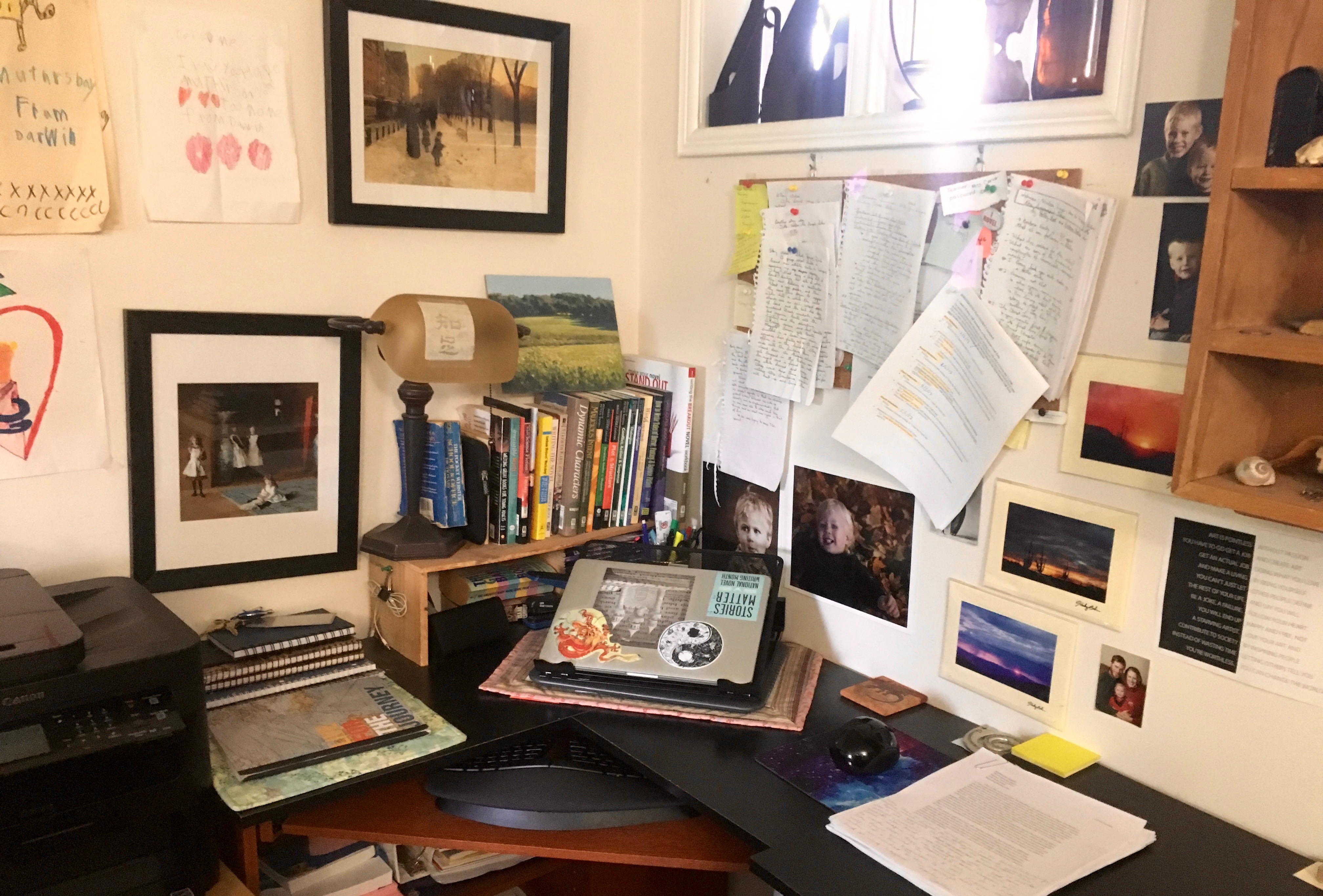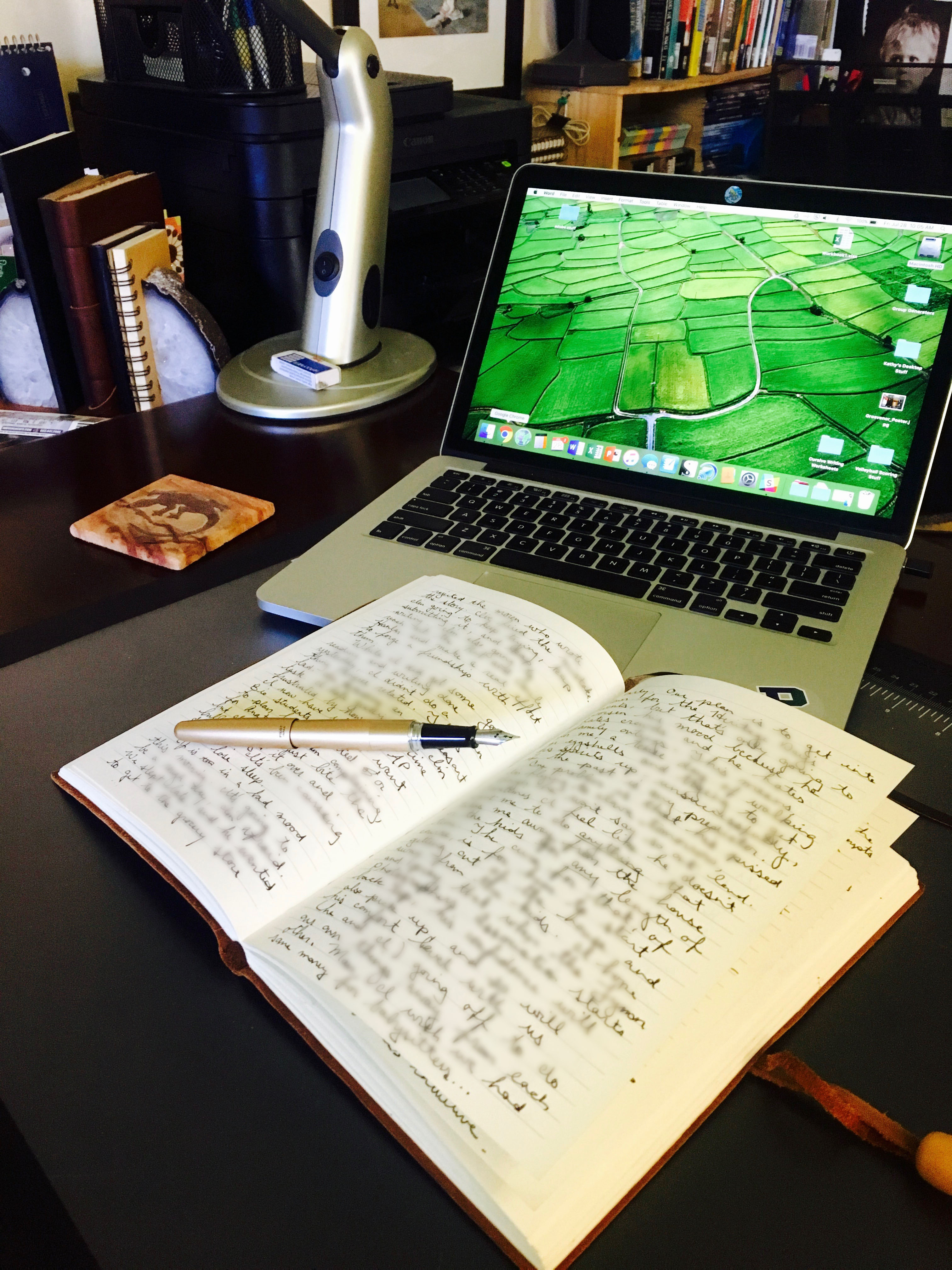This past Wednesday, I took part in the Insecure Writer’s Support Group’s monthly blog hop. The prompt dealt with trying new things and surprising yourself with your writing. My response to that prompt lives here. I am not a professional blogger, nor do I aspire to become one. I’ve only been tracking my adventures and misadventures in the writing realm for a couple of months at this point, so that post is long and rambling.
Since writing it, though, my mind has returned to the question again and again. In what ways have I surprised myself with my writing? With the hope of releasing that question from my brain (so I can get on with other things), I’m returning to it. This time, however, I have a specific topic to address: Point of View.
What We Read Shapes What We Write
I grew up reading (mostly) fantasy stories, and they all used either the third person limited or omniscient viewpoint. My very first introduction to the genre came in the form of my mother reading The Hobbit and Lord of the Rings trilogy to me when I was six. A few pages at a time each night. It was love at first reading.
As soon as could, I found and read as many books as I could by C. S. Lewis, Anne McCaffrey, Terry Pratchett, and Robert Jordan to name just a few of my early favorites.
 In middle school, I stumbled across a battered old copy of Stephen King’s short story collection, The Skeleton Crew. It was spine-tinglingly incredible, and it sparked my love affair with King’s writing. It also inspired me to start writing my own stories.
In middle school, I stumbled across a battered old copy of Stephen King’s short story collection, The Skeleton Crew. It was spine-tinglingly incredible, and it sparked my love affair with King’s writing. It also inspired me to start writing my own stories.
I turned into a rabid Stephen King super fan. I mean, I never sent him letters asking for his fingernail clippings or anything. He’s way too smart to fall for that, anyway. Still, there was a time when I wouldn’t drive through Bangor because I didn’t trust myself not to go full-on creeper outside the gates of King’s house. King wrote some of his short stories in the first person POV, but not many.
Trying New Things Lets Us Grow
Fast forward to now. I’m halfway through a master’s program in creative writing at Lesley University in Cambridge, Massachusetts. They’ve got six concentrations from which to choose. I’m focusing on writing for young people.
From my limited research, there seems to be a growing first person trend in the YA genre right now. To be clear, I know there’s always been plenty of first person stories in YA, but in the past five or so years it’s exploded in popularity, so much so that I began picking up and reading a bunch of first person YA books to expose myself to the viewpoint and its use in my genre concentration. Sadly, I found that many of the books I read made me want to gag. Many were self-centered, angst-ridden “I, me, me, I me” tripe.
But, like it or not, first person POV is hugely popular in YA these days. Combining it with present tense seems to be really hot right now. Recognizing my limited exposure to that viewpoint as a reader and a complete lack of experience writing it, I decided to focus on first person as an element of my coursework last semester. What’s the point of a master’s program if not to push yourself as a writer and try to improve?
Ugh! First person POV, why are you so hard?! Also, what the heck was I thinking?
At least with third person, I have years of reading and thousands of stories to draw on as I write my own stuff. There are narrative techniques that I find natural and intuitive. I don’t have to think too hard about it as I’m writing. Not so as I struggle to write a book in the first person. Two books, actually, for two different classes. One is a middle-grade steampunk piratical fantasy adventure. The other is a gritty YA wilderness survival story with science fiction and horror elements. Both are presenting unique challenges for me. Let me repeat myself: what what I thinking?!
Diving Into the Craft of POV
I own and have read numerous craft books, too many to list, but I took a photo of my collection. It’s over on my “Useful Articles” page. Anyway,

when I told my mentor (last semester) that I wanted to stretch myself as a writer by trying to write a novel in the first-person viewpoint, she assigned me excerpts from two different craft books to read, then crossed her fingers and whispered a quiet prayer to the Gods.One was a book I already owned, put out by Writer’s Digest and written by Nancy Kress titled Characters, Emotions, and Viewpoint. It’s a great craft book, and it was good for me to revisit it. I hadn’t cracked its pages in over ten years.

The other was a craft book I’d never heard of before by an author I was unfamiliar with—David Jauss. The book isn’t in print anymore. I struggled to find a copy on Amazon, and when it finally arrived I thought, “Wow, this thing even looks old. That makes it even more awesome!” I was right, by the way. Alone With All That Could Happen is my new favorite craft book. One of the best I’ve read, and if you checked out the picture of my collection, you know that I’ve read quite a few of them.
Here’s the rub. It’s one thing to read about a bunch of excellent techniques to develop characters and engage in world-building in a particular viewpoint. It’s another thing to sit down and execute those techniques with any degree of success.
The Good, the Bad, the Ugly (and the Hopeful)
I am particularly bad at going all the way inside my characters’ heads to share their thoughts. Too familiar with outside narrators sharing character insights from a distance, I guess. Most recently, my current mentor gave me feedback that included, “You’ve got a lot of third-person narrator techniques embedded into this scene. Try adding more first-person elements to bring us closer to your main character.”

Guess I’ve got some work to do, and while I could get discouraged by that (and sometimes I do get discouraged), I prefer to remind myself that I chose to give first-person a try to see what it felt like, to see what I could do with it. I actively sought to surprise myself. Thus far, I’ve succeeded, and as difficult as it’s been to stretch my abilities as a writer, it’s also been tremendous fun. I mean, come on. Who doesn’t love surprises?!
Have you ever intentionally attempted something new and different and risky as a writer with the hopes of learning and growing? Tell me about it in the comments section.
As always, keep writing. Keep creating. Keep striving to make a mark on this world by building and sharing other worlds.

